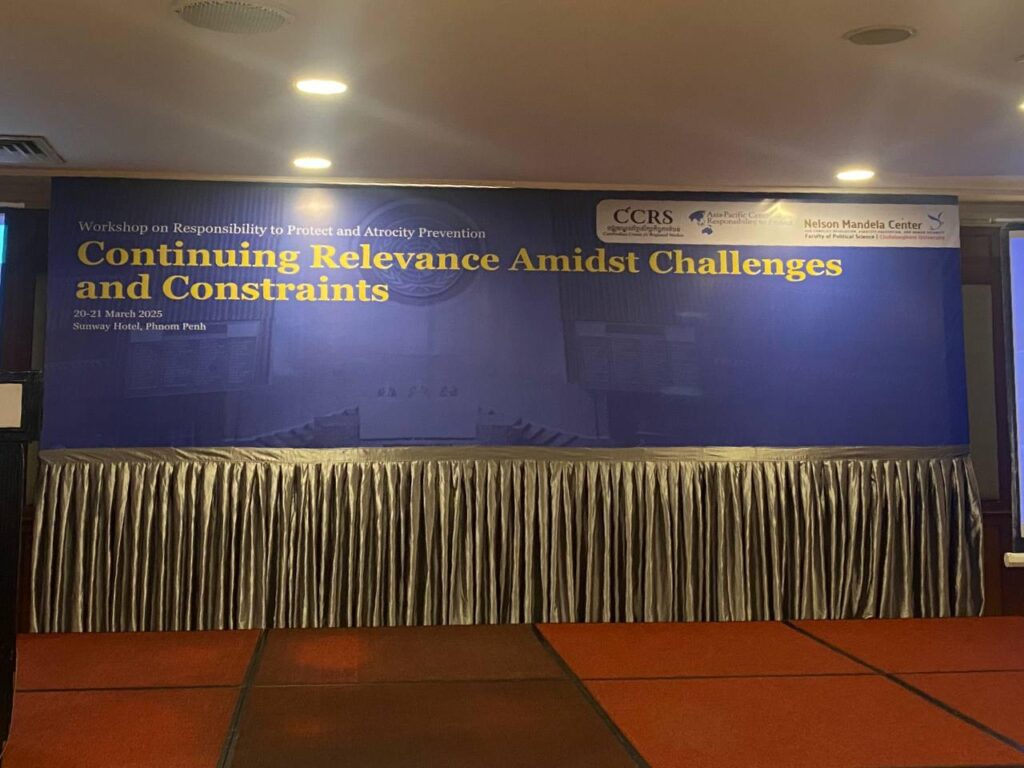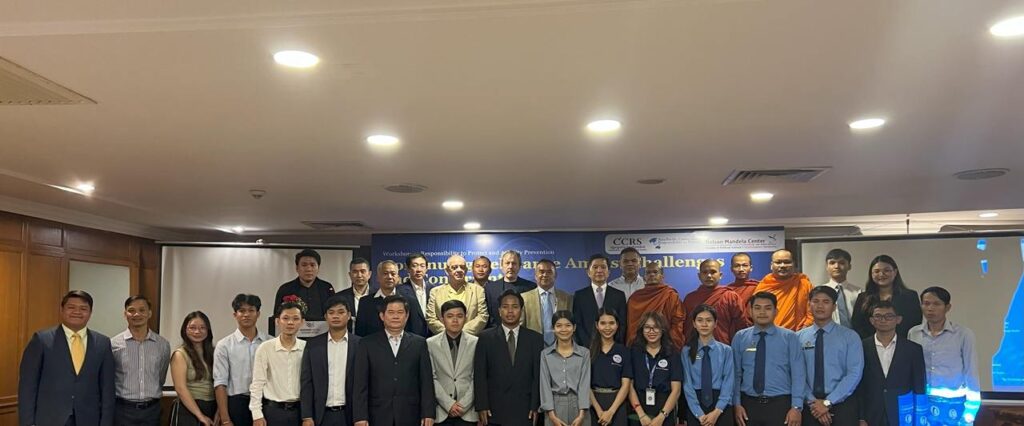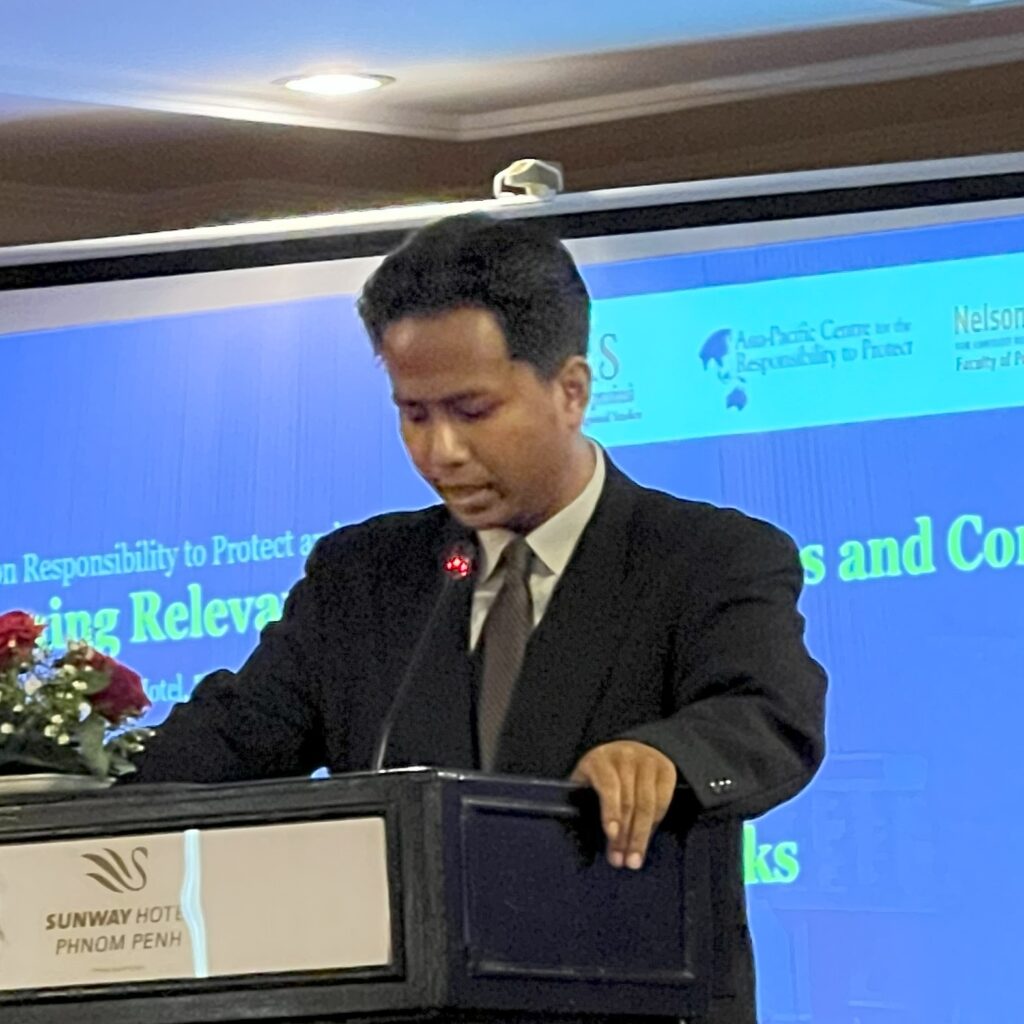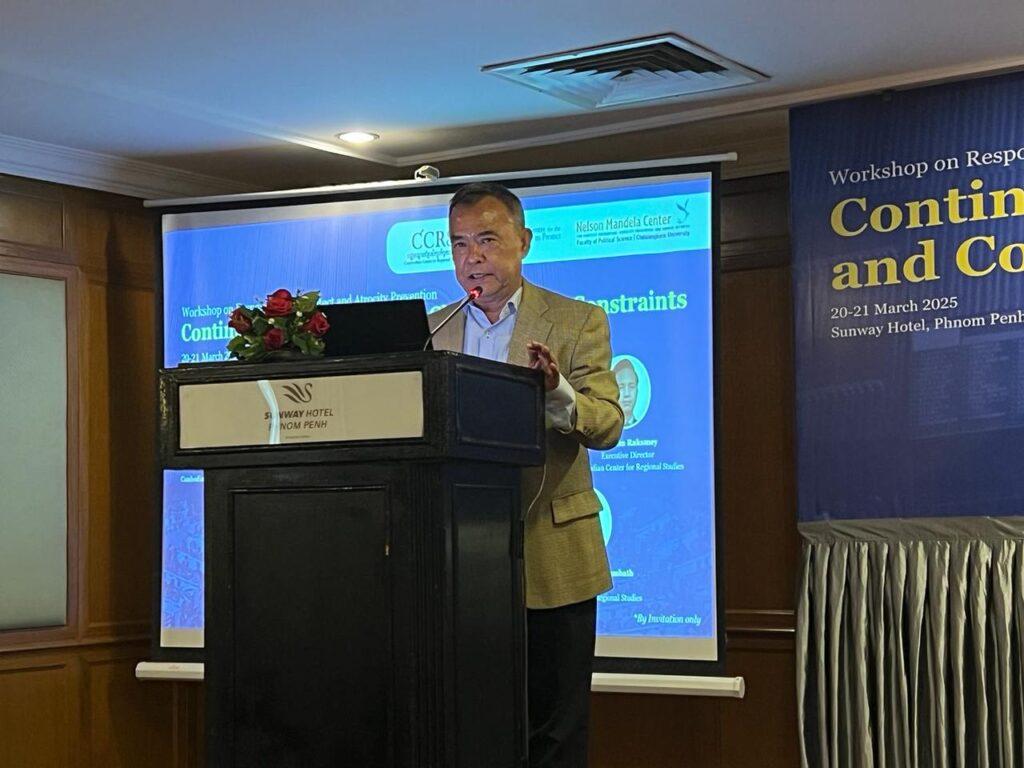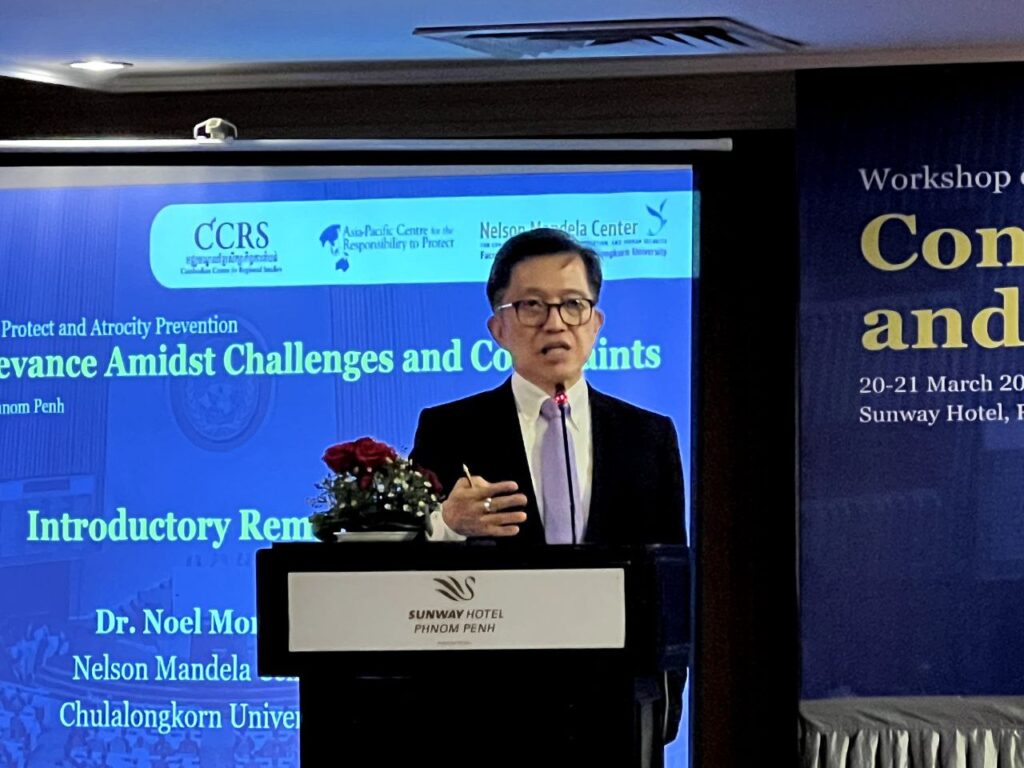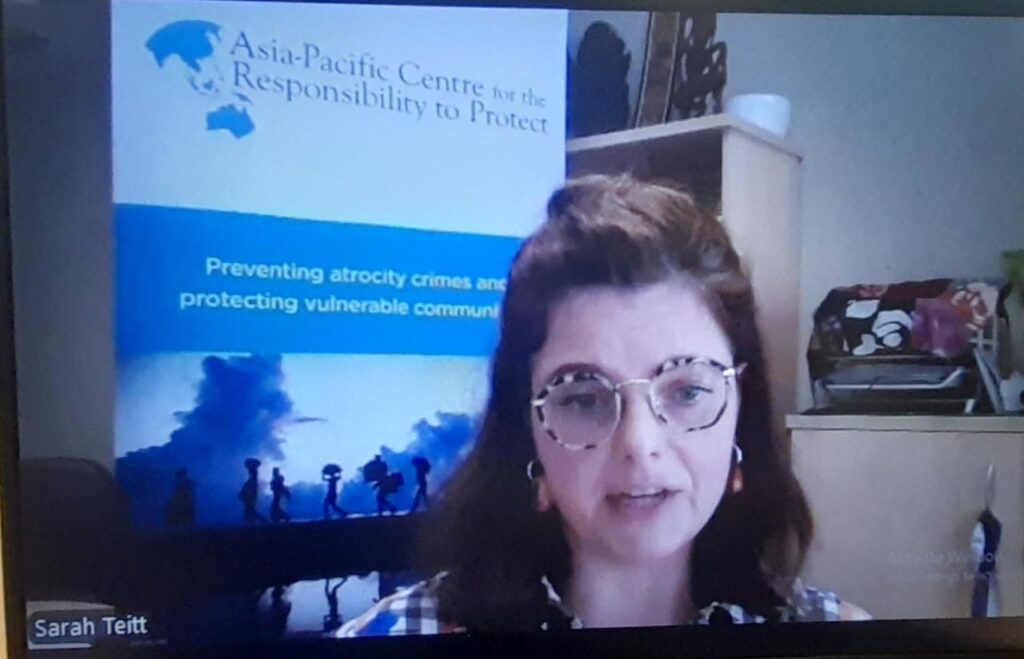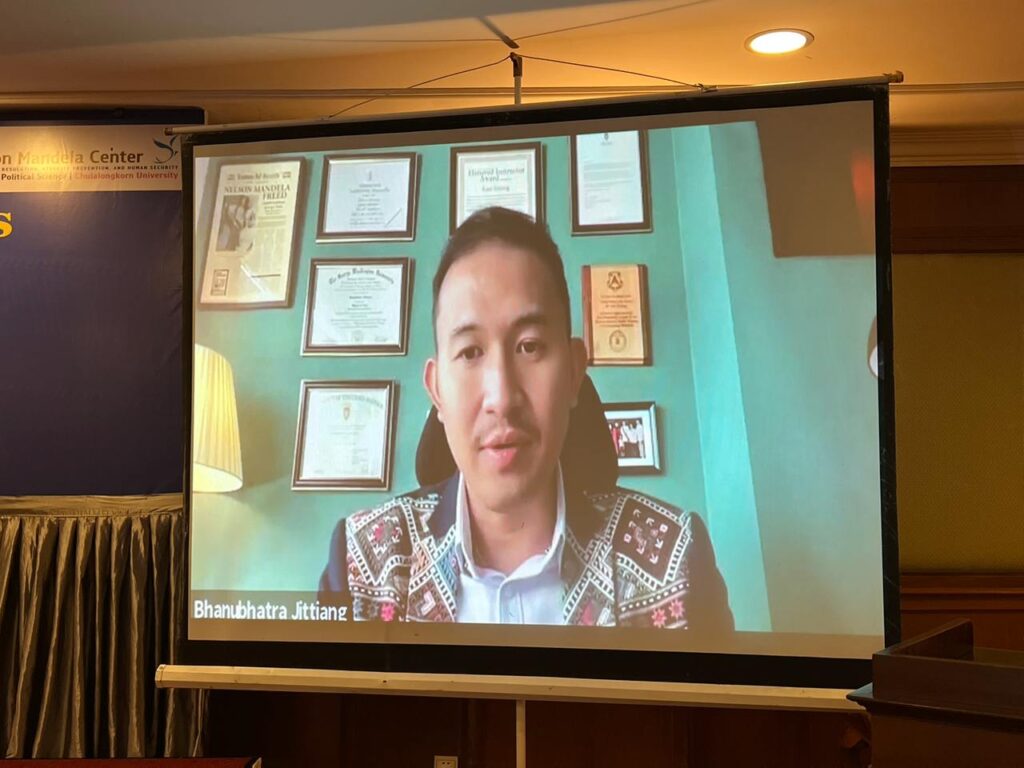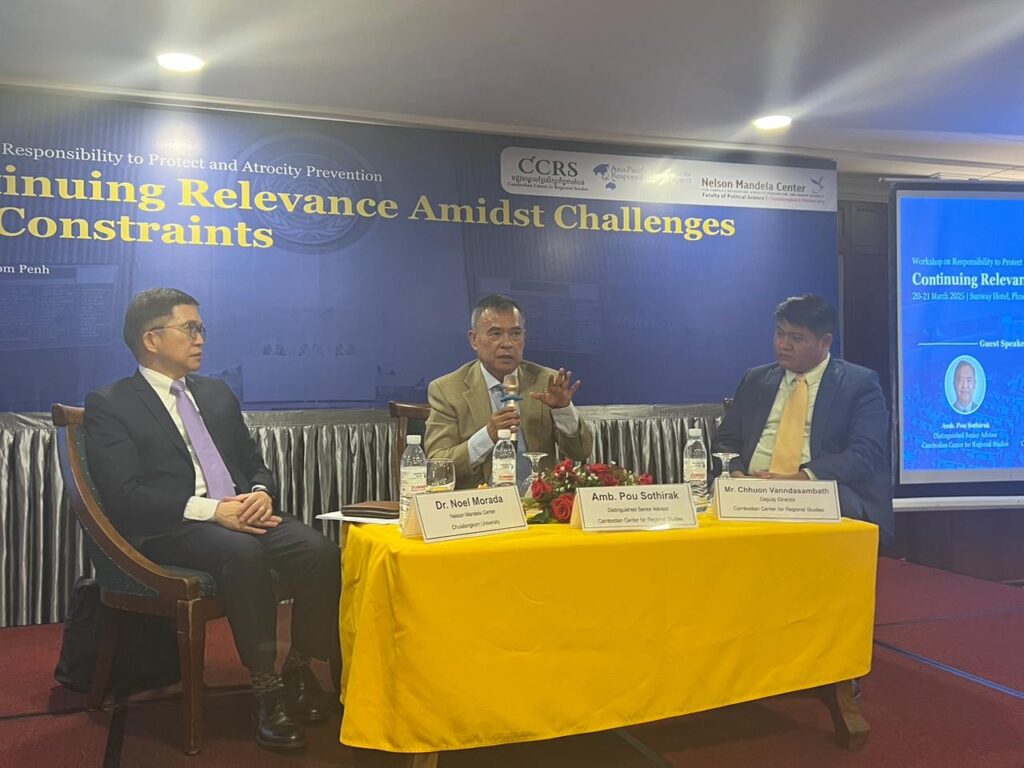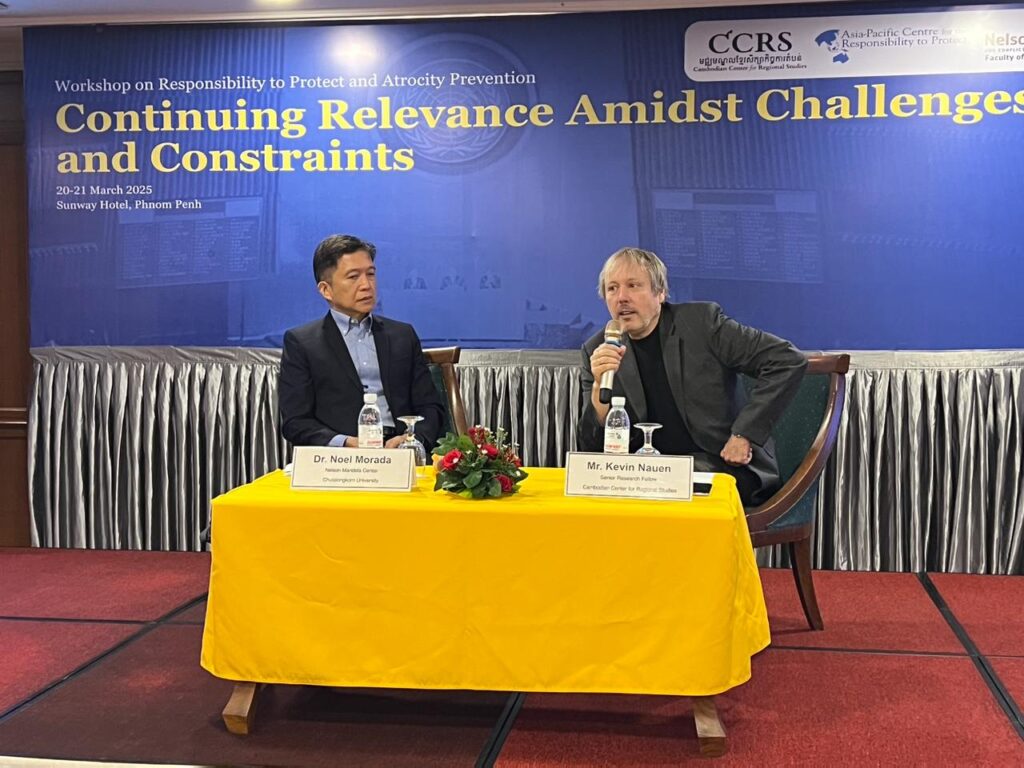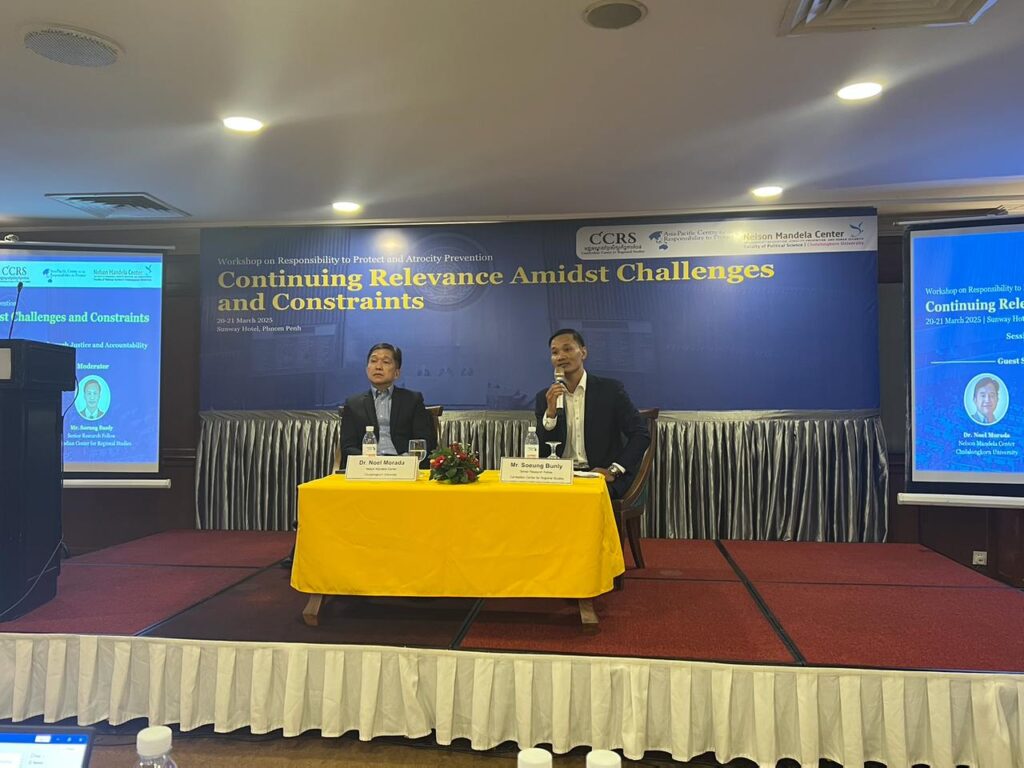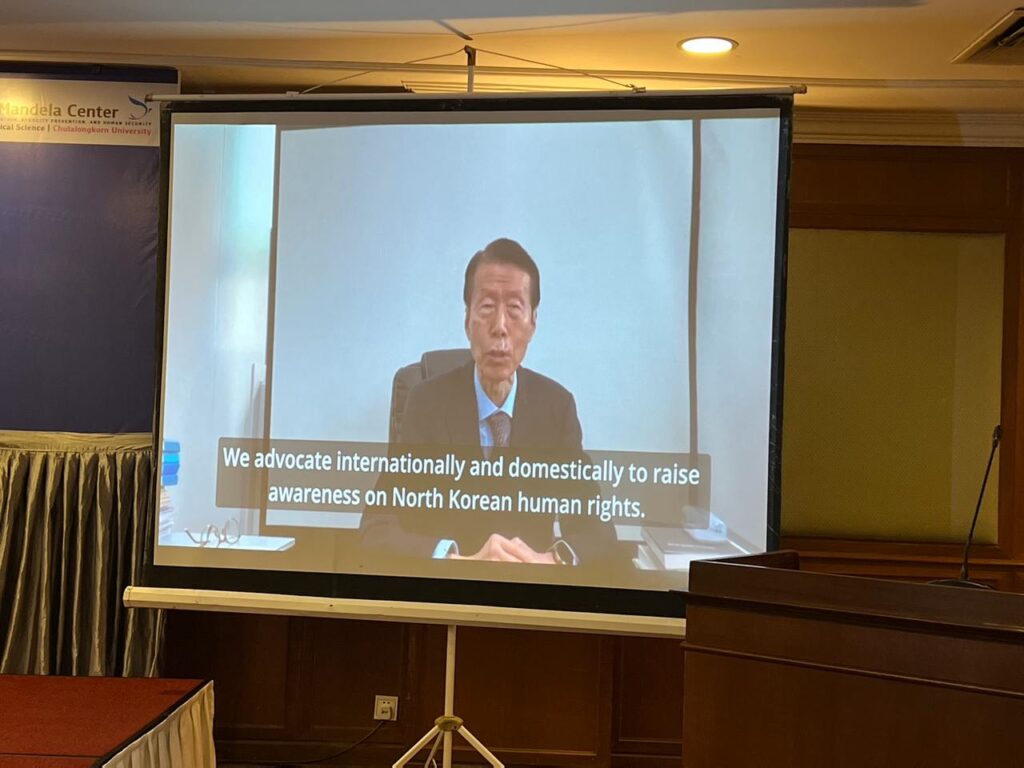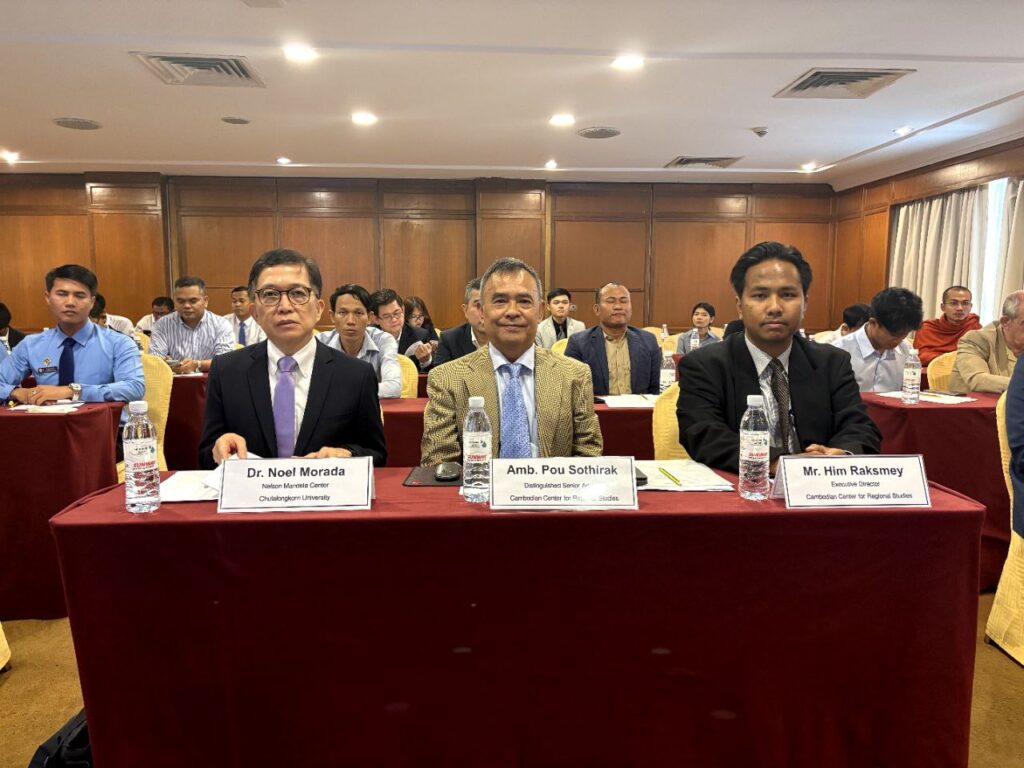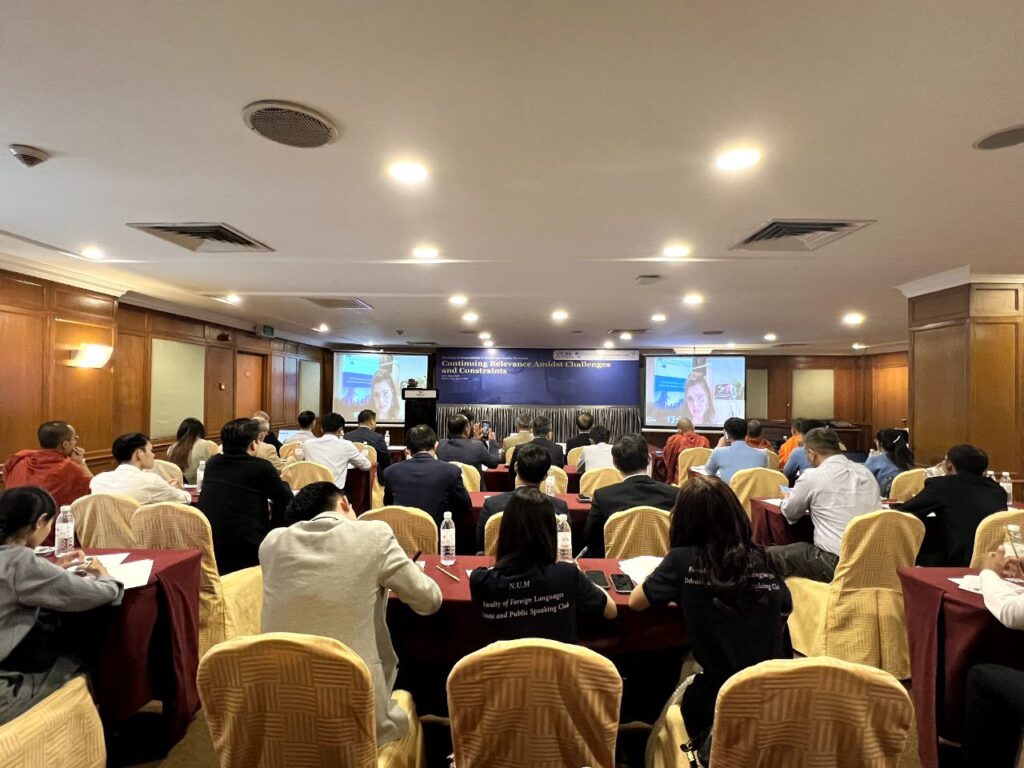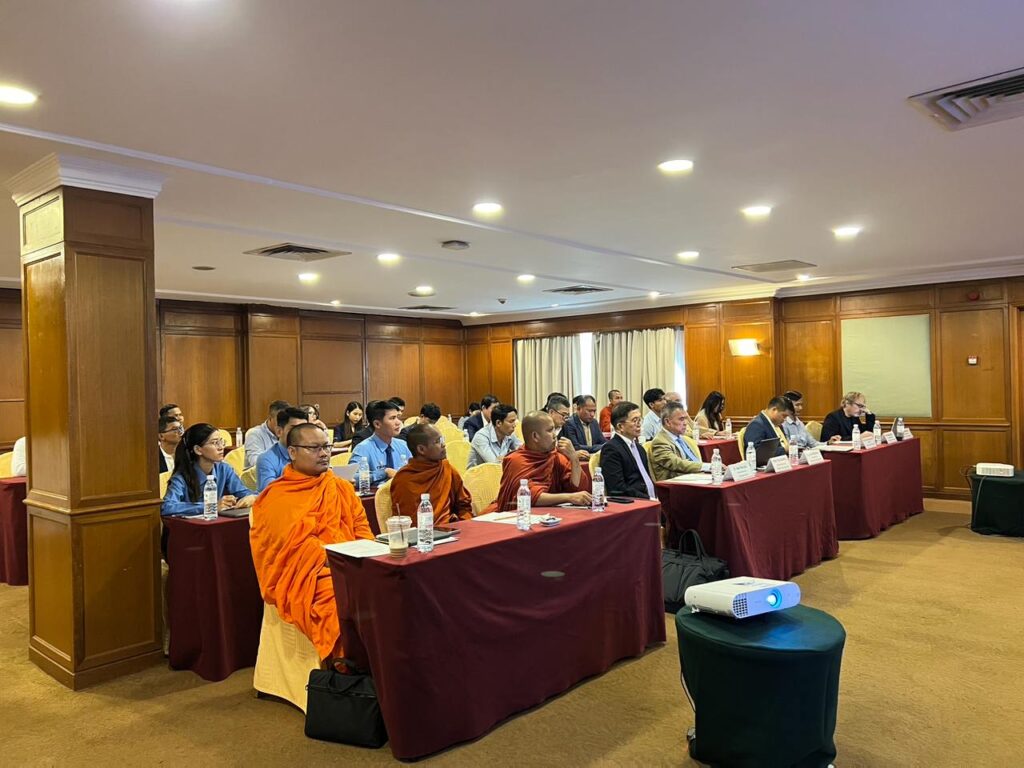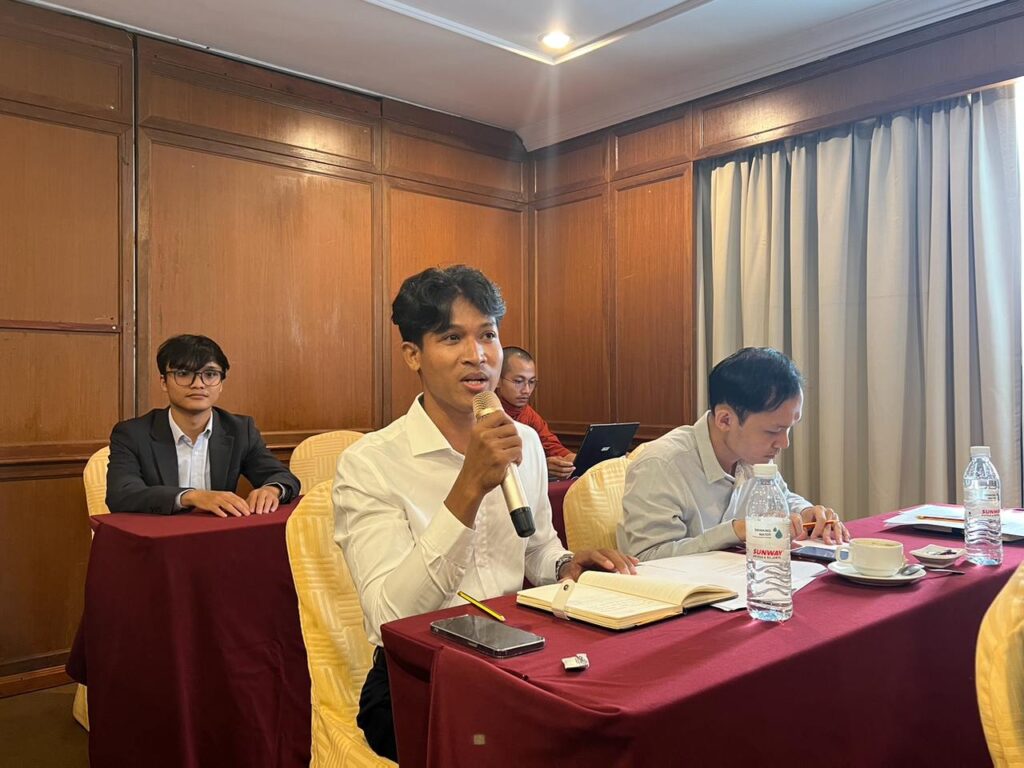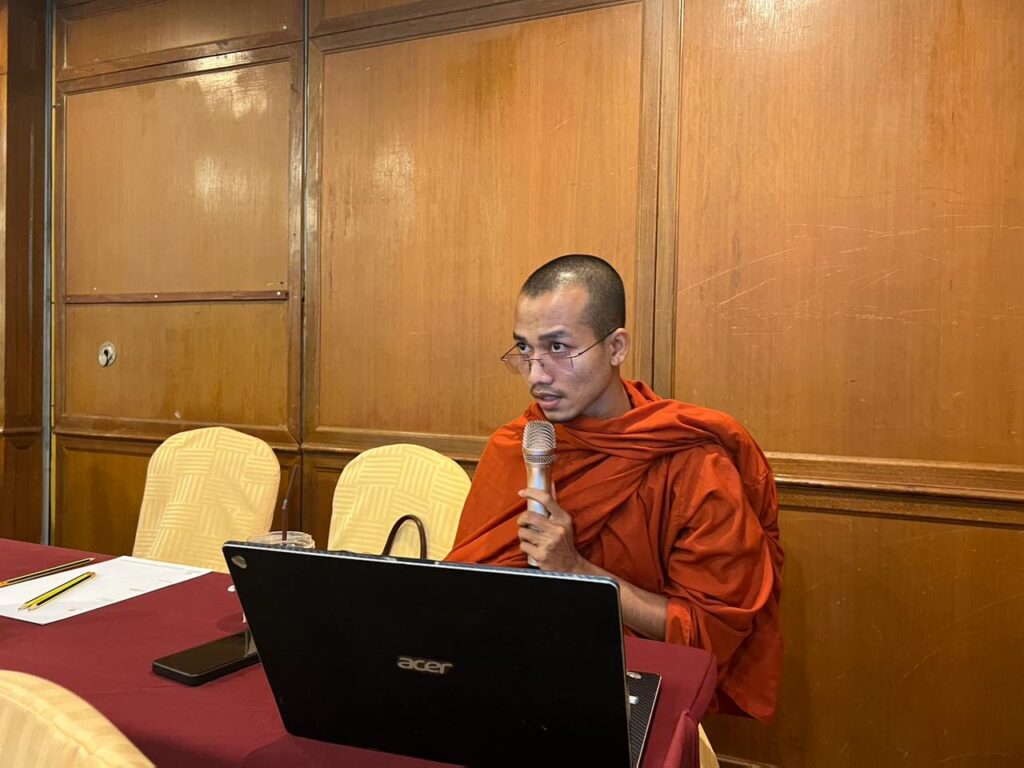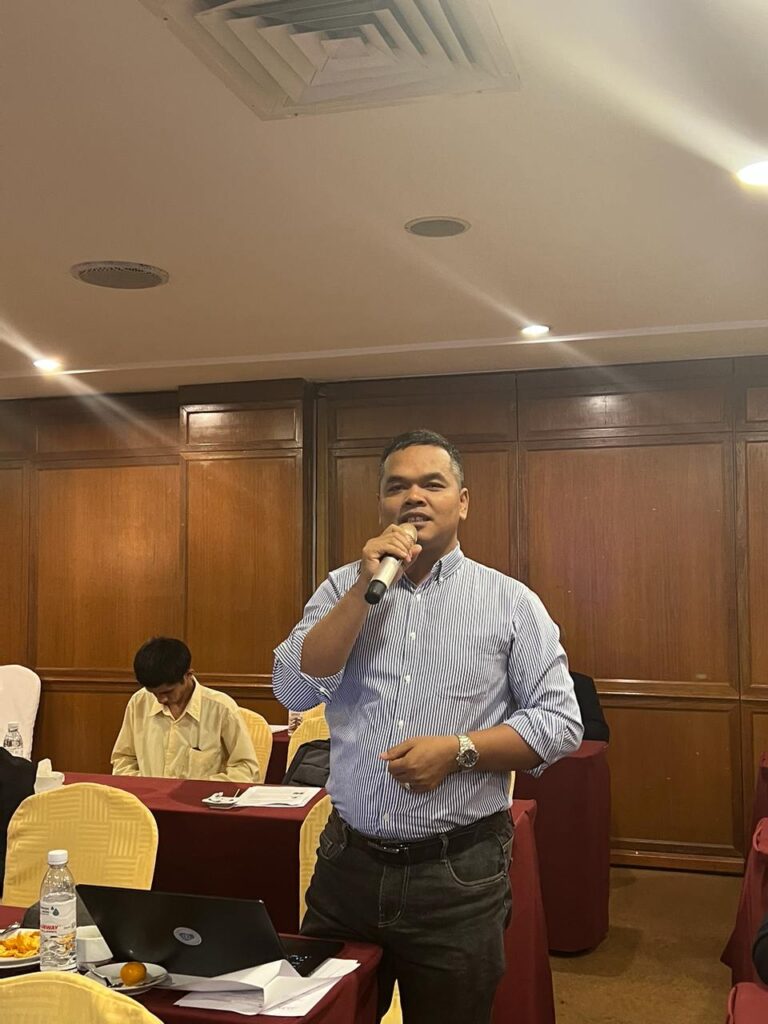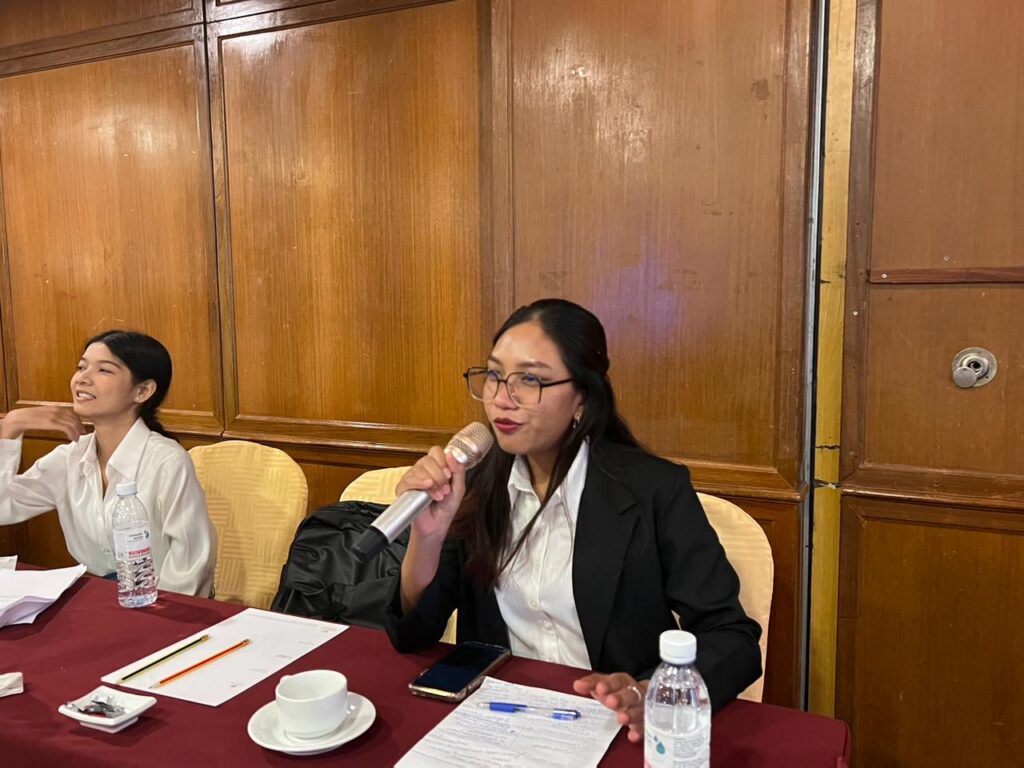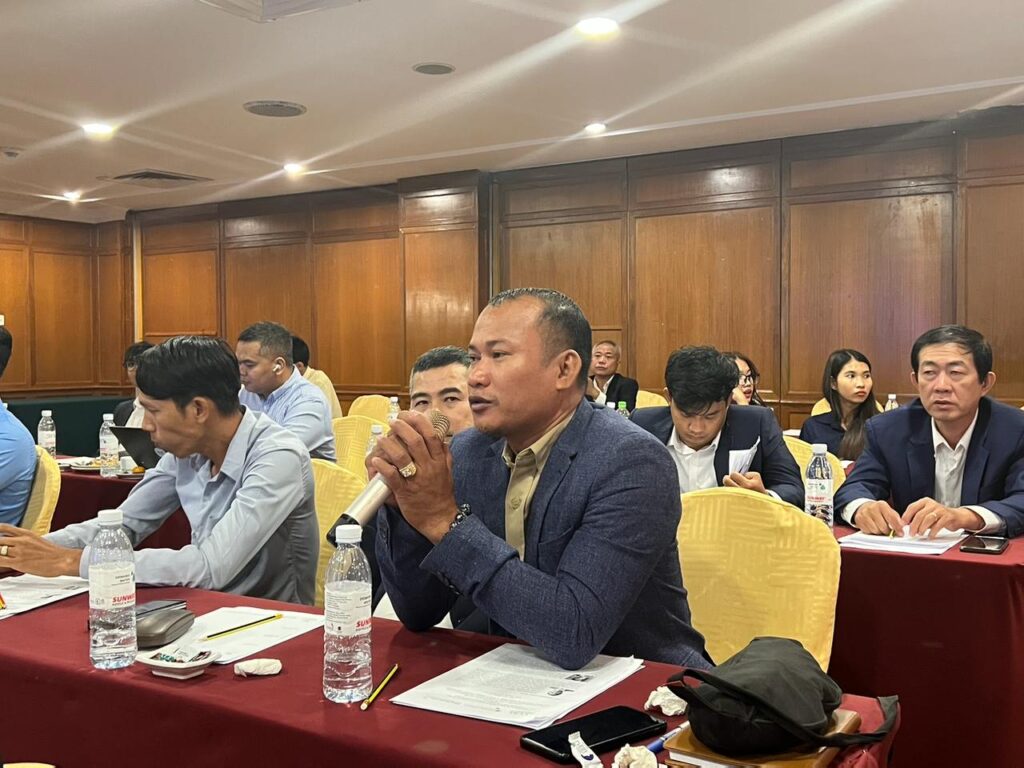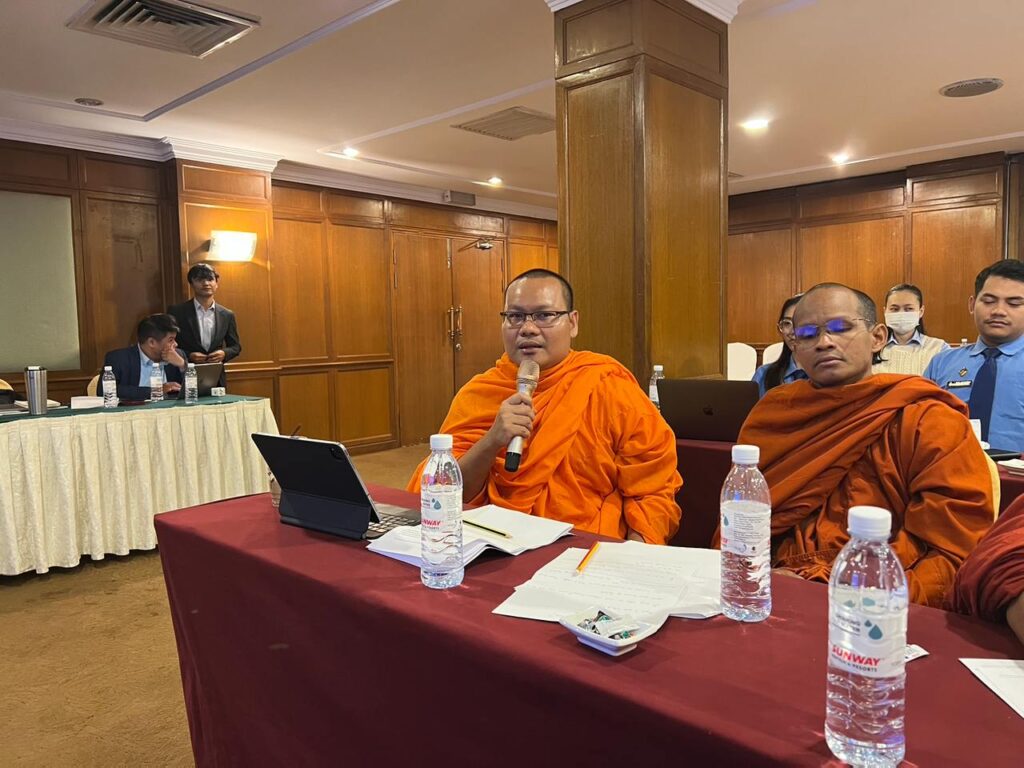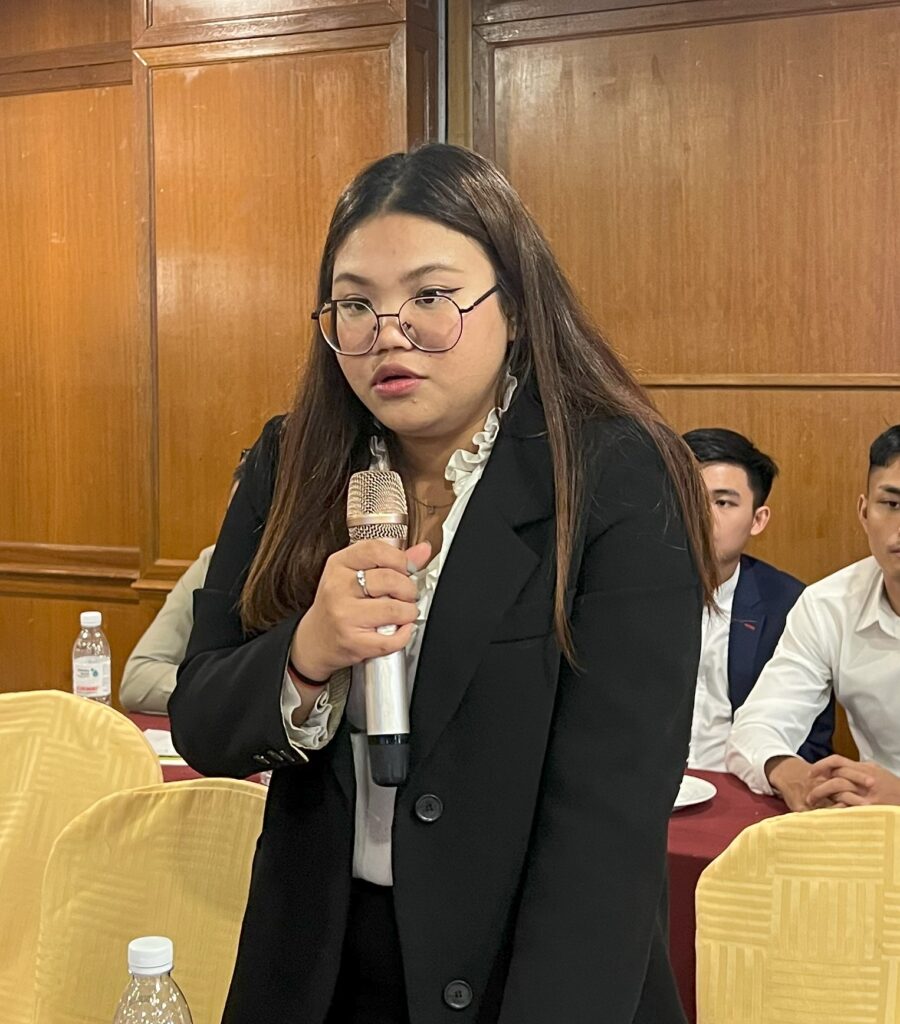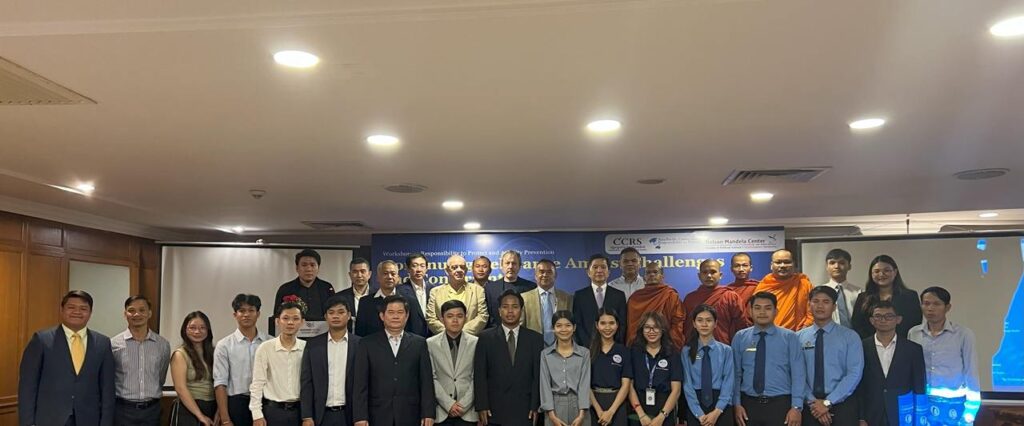On 20-21 March 2025, at Sunway Hotel, Phnom Penh, the Cambodian Center for Regional Studies (CCRS) organized a Workshop on Responsibility to Protect and Atrocity Prevention: Continuing Relevance Amidst Challenges and Constraints. This one-and-half-day event was co-organized by the Nelson Manela Centre (NMC) at the Faculty of Political Science, Chulalongkorn University, and the Asia Pacific Centre for the Responsibility to Protect (APR2P), University of Queensland St Lucio, Australia. More than 40 participants took part in this workshop including officials from the Senate, National Assembly, Office of the Council of the Ministers, Ministry of Foreign Affairs and International Cooperation, Ministry of Interior and Royal School of Administrations, as well as representatives from civil society, Cambodian researchers and university students.
Opening Session
Starting the program, Mr. Him Raksmey, Executive Director of CCRS, expressed a warm welcome to the workshop attendees, and extended a deep appreciation to NMC and APR2P for the kind support. The purpose of this workshop is to discuss the continued relevance of international principles such as the Responsibility to Protect (R2P) as an international framework to prevent mass atrocities amidst its challenges and constraints. Participants have opportunities to gain better understanding and exchange views with the knowledgeable regional experts on the concept of R2P, its practices, its challenges and limitations along with case studies such as Myanmar and North Korea. He mentioned that CCRS wishes to continue efforts to constructively raise public awareness and promote discussions on matters related to R2P and atrocity preventions in Cambodia, building upon existing useful works undertaken by personalities including Amb. Pou Sothirak and Dr. Noel Morada.
Next, Dr. Sarah Teitt, Director of APR2P, delivered her opening remarks in a pre-recorded video. She said the world today is still confronting the aura of R2P crimes – Genocide, Crime against Humanity, War crime, and Ethnic cleansing. Cambodia can help shape a regional norm that balances noninterference with collective responsibility when it comes to atrocity prevention. Cambodia commands greater recognition when it comes to R2P because the country understands firsthand the devastating consequence of mass atrocities and the importance of timely prevention and accountability. She also noted that implementing R2P and advancing atrocity prevention remains a complex challenge, perhaps even more complex in today context where witness the resurgence of authoritarianism, the weakening of democratic institutions, the restriction of civic space, and violence committed against civilians. Atrocity prevention requires adaptive strategies, stronger regal regional mechanisms, and a renewed commitment to upholding international norms, despite the increasing complexity of global challenges. Reinforcing R2P requires sustained political will, stronger local, national, and regional cooperation, and innovative approaches to atrocity preventions that align with the evolving nature of conflicts and threats to human rights.
After that, Dr. Bhanubatra Jittiang, Director of NMC, in a recorded opening speech, stated that the adoption of R2P at the World Summit in 2005 reaffirm the political and legal obligation of the state while exercise its sovereignty, the state bears the primary responsibilities, for protecting their citizens from mass atrocities. Atrocity prevention is not merely about responding to crises. It is about early warning, strengthening institutions and addressing root causes before violence escalates. The international community must reaffirm its commitment to protect the vulnerable populations against mass crime and upholding fundamental human rights.
Subsequently, in his opening remarks, Amb. Pou Sothirak, Distinguished Senior Advisor to CCRS, noted that the legacy of mass crime committed by the Khmer Rouge regime during their rule from 1975 to 1978 remains a stark tragedy capturing dark memory that continues to traumatize the Cambodian people due to the horror of cruel executions, hard labor, exhaustion, hungry, confusion, and hopelessness. These experiences reflected the importance of putting in place relevant frameworks and tools to enforce atrocities prevention by limiting the types of conditions that may give rise to mass violence, by incentivizing a perpetrator against committing atrocities, or by interceding to protect civilians directly to avoid the repeats of atrocities committed the Khmer Rouge from happening to Cambodia again. This goal can be achieved through both early prevention and more immediate response efforts. He added that rooting out mass crimes necessitates states to be able to put in place effective national policies on atrocity prevention and protection by taking action to eliminate or reduce the root causes that may give rise to genocide and other forms of mass atrocities and measures aim to stop or to limit the scope of atrocities once they are underway, and – in effect – prevent further atrocities from occurring or repeating itself again. The international community also have the responsibility to assist states in developing and bolstering existing atrocity prevention measures, develop new initiatives, and ensure that there exist a workable national action plan prioritizing and institutionalizing within the national framework of mass crimes prevention.
Amb. Pou mentioned that from this 1.5-day workshop, participants can learn various aspects of R2P through three specific modules, including: protection of vulnerable populations fleeing conflict (using case studies); challenges to implementing R2P in the context of ongoing conflicts (using case studies); the role of International Court of Justice and International Criminal Court in pursuing accountability for atrocity crimes; the role of regional organizations, the United Nations, and UN mechanisms.
Session 1: Introduction to R2P and Atrocity Prevention
During the Session 1, the two key speakers were Amb. Pou Sothirak and Dr. Noel Morada. The discussion was moderated by Mr. Chhuon Vanndasambath, Deputy Director, CCRS.
Amb. Pou Sothirak shared his insightful views on Cambodia’s approach to R2P. He first discussed Cambodia’s experiences in dealing with the past atrocities. He then shared his knowledge on: Cambodia’s Achievement in Upholding R2P and discussed the challenges still faced by Cambodia in dealing with preventing future atrocities. He gave useful ideas on what role Cambodia could play to encourage and promote R2P in the context of ASEAN and how Cambodia could be assisted to fulfill its own responsibility to protect.
Then, Dr. Noel Morada gave an interesting talk on Introduction to R2P and Atrocity Prevention. His presentation covered: Background and Evolution of Responsibility to Protect; Daunting effect on R2P in the Post-Libya intervention; Scope of R2P in the context of 2005 World Summit Outcome Document (Paragraph 138 and 139), the three pillars of R2P: Pillar 1—Prevention by state; Pillar 2— Assistance provided by International Community to assist states to implement Pillar 1; Pillar 3—Timely and decisive response by UN; and The four atrocity crimes: Genocide, Crime Against Humanity, War Crime, Ethnic Cleansing.
Followed the presentations by the two speakers, there were interesting exchanges of views between the panelists and the audience. Key questions were asked including; which stakeholders have the responsibility to implement R2P, effectiveness of the United Nations Security Council in upholding R2P; what roles Cambodia can play to promote R2P in ASEAN; and how to address misperceptions on R2P. The two experts provided satisfactory answers to these questions.
Session 2: R2P and Atrocity Prevention in Practice
In Session 2, the primary speaker was Dr. Noel Morada. His talk was moderated by Prof. Kevin Nauen, Senior Research Fellow, CCRS.
Dr. Morada delivered an insightful presentation on R2P and Atrocity Prevention which included: Context of Atrocity Prevention and R2P focusing on ASEAN, Mainstreaming R2P in ASEAN, ASEAN and R2P, and R2P: Myanmar Case Study.
After the lead speaker concluded in his presentation, there were an interactive discussion. Participants posed questions to Dr. Morada over topics such as roles of Malaysia’s ASEAN Chairmanship in pushing for resolutions in Myanmar; why ASEAN as a collective body has been still lukewarm with R2P, and has never mentioned R2P as efforts to address the Myanmar Crisis; why every major player has appointed their own special envoys on Myanmar; challenges and prospects of the potential elections in Myanmar; the future prospects of ASEAN Five-Point Consensus on Myanmar; roles and shortfalls of sanctions; importance of R2P and transitional justice in the potentially post-crisis Myanmar. Dr. Morada delivered interesting answers to all these questions.
Session 3: R2P and Atrocity Prevention through Justice and Accountability
During the third panel, Mr. Kim Tae-hoon, President, People for Successful Corean Reunification (PSCORE), and Dr. Noel Morada were the main experts sharing their views on the sub-theme of this session. The discussion was moderated by Prof. Soeung Bunly, Senior Research Fellow, CCRS.
In a pre-recorded presentation, Mr. Kim Tae-hoon deliberated on the importance of R2P in the state of human rights in North Korea. The Responsibility to Protect (R2P) Doctrine adopted at the World Summit in 2005 redefined State sovereignty as a contingent on a state ability to protect its population from genocide, war crimes, ethnic cleansing and crimes against humanity. In 2021, the UN General Assembly made R2P a permanent agenda item and as of late 2023, the UN Secretary General has issued 15 reports on each implementation progress includes 61 states and two regional organizations appointing R2P national focal points while 53 States and the EU have joined the group of friends of R2P. The world faces its highest number of armed conflicts since World War II and violations of international humanitarian law are routinely ignored included the ongoing human rights situations in North Korea. He provided five recommendations including 1/ UN Security Council must persistently push for North Korea refer to the ICC for crimes against humanity; 2/ the international community must expand efforts to provide external information to North Koreans in ensuring access to the truth; 3/ China must uphold the principles of the no forced repatriations of North Korean defectors; 4/ Denuclearization efforts must not overshadow North Korean human rights concerns. Any negotiations with DPRK should include human rights as a central issue; and 5/ North Korea must allow humanitarian organizations unrestricted access to vulnerable populations. The global community must reaffirm its commitment to R2P and the universal human rights values, and ensure that impunity for North Korea’s crimes does not continue. Upholding human rights in North Korea is not just a moral imperative but a necessity for global security.
During Session 3, Dr. Noel Morada gave another captivating presentation on the importance of justice and accountability in R2P and atrocity preventions. He discussed the relationship of the four atrocity crimes and international judicial processes – International Court of Justice (ICJ), International Criminal Court (ICJ), Special Hybrid Court and gave his assessment how ASEAN response to the Myanmar crisis by giving excellent case study. He explained why the recommendation of the High-Level Advisory Panel’s (HLAP) Report were not adopted by ASEAN which include: raising public awareness about R2P, developing regional capacity for early warning through existing ASEAN mechanisms and institutions. He also deliberated on how R2P spirit has been incorporated in the agenda of the ASEAN Intergovernmental Commission on Human Rights (AICHR). He called for supporting relevant civil society organizations’ (CSO) efforts in promoting human rights protecting and advancing norms and principles on atrocity prevention. With regard to accountability, he discussed why there is not express collective support for UN initiatives in holding Myanmar accountable with the atrocities in Rakhine and current crimes committed by the Junta.
After the presentations, lively and engaging discussions took place as members of the audience whose main questions were asked to Dr. Morada, and he provided insightful answers on matters as follows: challenges of enforcement mechanisms of ICC and ICJ; the possibilities and challenges of establishing a hybrid court on North Korea in the UN General Assembly; how can international justice system be reformed to support R2P implementations; how interests of major powers affect R2P and international justice system; challenges and prospects of ICC’s roles in the Philippines’ War on Drug and the ongoing humanitarian crises in Gaza; and importance of political leadership in enhancing justice and accountability.
Closing Session
In his concluding remarks, Dr. Noel Morada expressed his appreciation to CCRS for organizing this 1.5-day workshop. He mentioned that Cambodia should take the lead in advancing in the Southeast Asia given the country has all the right ingredients in undertaking these important efforts. He hoped that all participants have a better understanding on R2P from this workshop.
Lastly, Amb. Pou Sothirak delivered wrap-up and closing remarks. He noted that from the one-and-half-day workshop, the audience gained deeper knowledge on R2P and atrocity preventions through the interesting presentations made by the experts, particularly Dr. Noel Morada, with the key takeaways below:
– No society is immune from atrocity crimes
– If the atrocities happened in the past have not been properly confronted, those mass crimes will reoccur again.
– R2P is a friend to sovereignty. If it links to good governance (democracy, and human rights protection – values affirmed by ASEAN – the legitimacy of states is enhanced.
– We have seen R2P as responsibility incorporated in various ASEAN documents, agreements, and vision statements.
– Independent system of early warning regarding root cause of R2P by independent actor are much need to start up a good national R2P action plan in rooting out mass crimes.
Amb. Pou Sothirak extended sincere appreciations to NMC and APR2P for the kind support and to all role players, particularly Dr. Noel Morada, for his insightful presentations. He also expressed thankfulness to all participants who attended this 1.5-day workshop from the start until the end, and contributed actively during the course of discussions of this event.
The workshop was concluded in a friendly manner.
